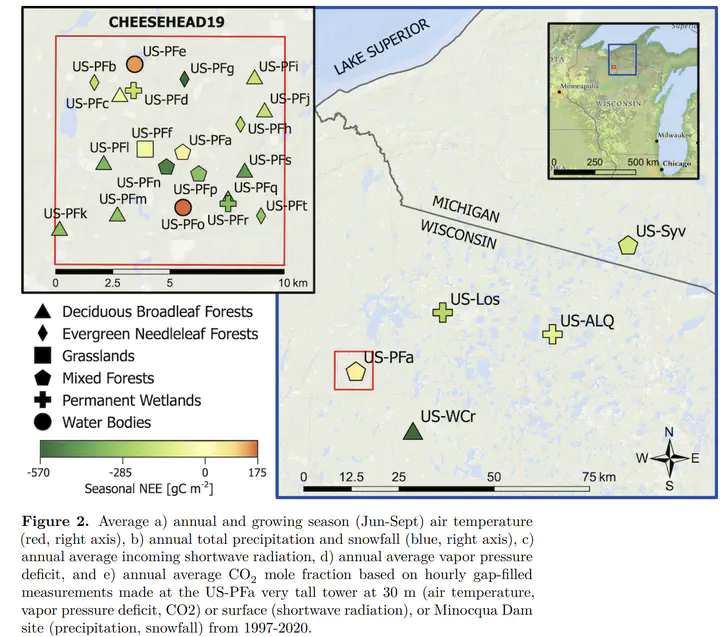
Abstract
Long-running eddy covariance flux towers provide insights into how the terrestrial carbon cycle operates over multiple time scales. Here, we evaluated variation in net ecosystem exchange (NEE) of carbon dioxide (CO2) across the Chequamegon Ecosystem-Atmosphere Study (ChEAS) Ameriflux core site cluster in the upper Great Lakes region of the USA from 1997-2020. The tower network included two mature hardwood forests with differing management regimes (US-WCr and US-Syv), two fen wetlands with varying exposure and vegetation (US-Los and US-ALQ), and a very tall (400 m) landscape-level tower (US-PFa). Together, they provided over 70 site-years of observations. The 19-tower CHEESEHEAD19 campaign centered around US-PFa provided additional information on the spatial variation of NEE. Decadal variability was present in all long-term sites, but cross-site coherence in interannual NEE in the earlier part of the record became decoupled with time. NEE at the tall tower transitioned from carbon source to sink to a more variable period over 24 years. Respiration had a greater effect than photosynthesis on driving variations in NEE at all sites. A declining snowpack offset potential increases in assimilation from warmer springs, as less-insulated soils delayed start of spring green-up. No direct CO2 fertilization trend was noted in gross primary productivity, but influenced maximum net assimilation. Direct upscaling of stand-scale sites led to a larger net sink than the landscape tower. These results highlight the value of clustered, long-term carbon flux observations for understanding the diverse links between carbon and climate and the challenges of upscaling observations.